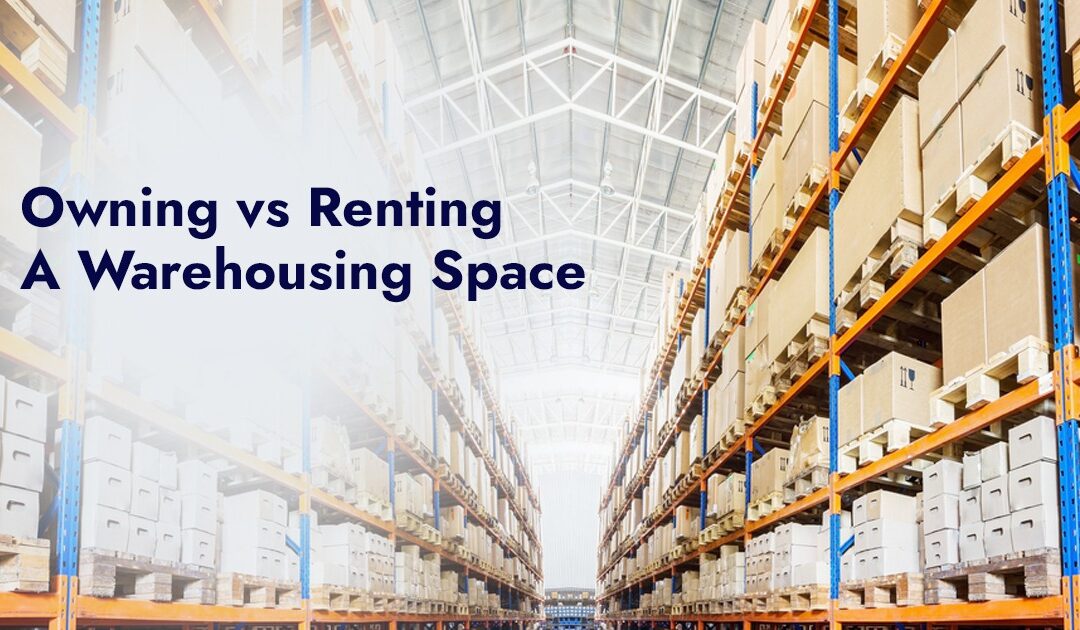Warehouse space is fundamental to any successful logistics organization. It serves as the central location for receiving, storing, managing, and dispatching goods. However, when it comes to getting this necessary space, a critical question arises: should you own or rent your warehouse? This decision can have a substantial impact on your financial situation, operational freedom, and long-term growth plan.
Owning a Warehouse:
What are some advantages of owning a warehouse?
- Stability and Control: With a mortgage, your monthly payments are often fixed, providing more financial certainty than potentially variable rental prices. Furthermore, you have full control over the property. This implies you can change the layout, add specialist equipment, and make adjustments to meet your specific demands without the landlord’s approval.
- Long-Term Investment: Owning a warehouse can be an excellent long-term investment. You accumulate equity over time as the value of your property increases. In the future, you may be able to sell the property for a profit or use it as collateral to obtain funding for additional business expansion.
- Pride of Ownership: Owning a warehouse gives you a sense of permanence and stability. It can also enhance staff morale and strengthen the company’s image by projecting a sense of established success.
What are some considerations to keep in mind when owning a warehouse?
- High Upfront charges: Purchasing a warehouse necessitates a significant upfront expenditure, which includes the down payment, closing charges, and possibly refurbishment costs. This can have a substantial influence on cash flow, restricting the resources available for other business needs.
- Maintenance and Repairs: As the owner, you bear the entire responsibility for all maintenance and repairs. This includes any unexpected concerns with the roof, plumbing, electrical system, or structural integrity. These expenditures might be unanticipated and accumulate over time.
- Limited Flexibility: If your company’s demands alter or your operation shrinks, selling a warehouse can be a time-consuming and difficult procedure. You may be trapped with surplus space or an unattractive location that limits your capacity to respond to market movements.
Renting a Warehouse:
What are some advantages of renting a warehouse?
- Lower costs: Renting demands a significantly lower initial commitment than owning. Typically, you simply need to pay the security deposit and the first month’s rent. This frees up funds to be used for other business needs such as inventory, equipment, or marketing campaigns.
- Flexibility: Renting provides additional flexibility in terms of location and space. You can select a lease period that best suits your company’s needs and adjust the size of your warehouse as your inventory changes. This can be especially advantageous for startups and businesses with unpredictable growth paths.
- Reduced Risk: With a lease, you are usually not responsible for unforeseen maintenance or repairs. The landlord takes care of those expenses, lowering your financial risk and providing peace of mind.
What are some considerations to keep in mind when renting a warehouse?
- Lack of Control: As a tenant, you have little authority over the property. Modifications or improvements normally require landlord clearance, and you may be subject to restrictions on how you use the area.
- Changing Costs: Rent rates can fluctuate over time, affecting your financial planning. Furthermore, lease renewals may result in rent increases, thus reducing your profit margins in the long run.
- There is no equity building: When you rent, you are essentially paying for another person’s property. You do not accumulate equity, and the money spent on rent is not an investment in your own future.
Owning and renting warehouses both have advantages and downsides. The best solution is determined by your specific business objectives, financial status, and predicted growth trajectory. Financial stability, operational flexibility, and long-term investment potential are all important considerations when making a decision.

